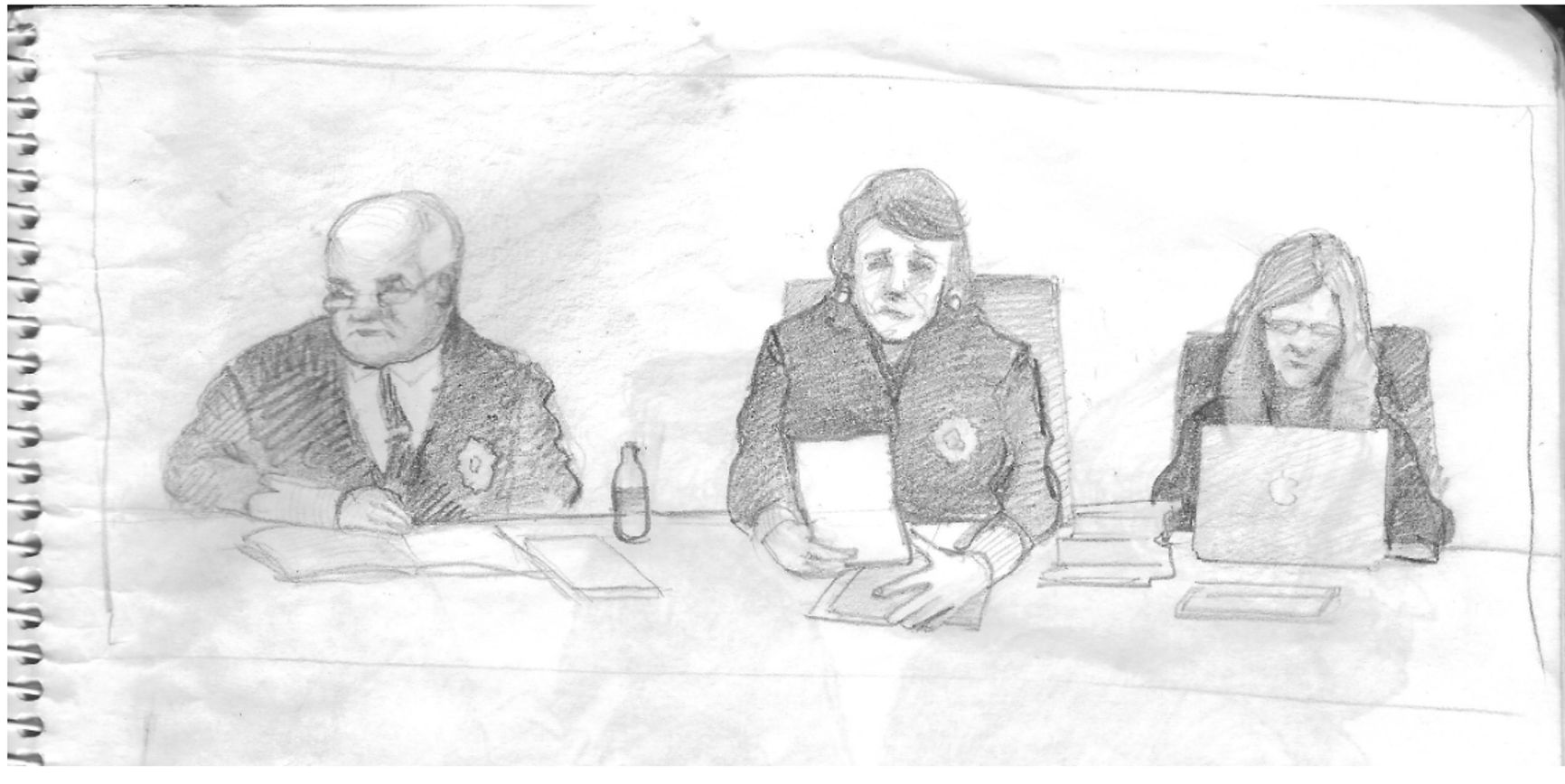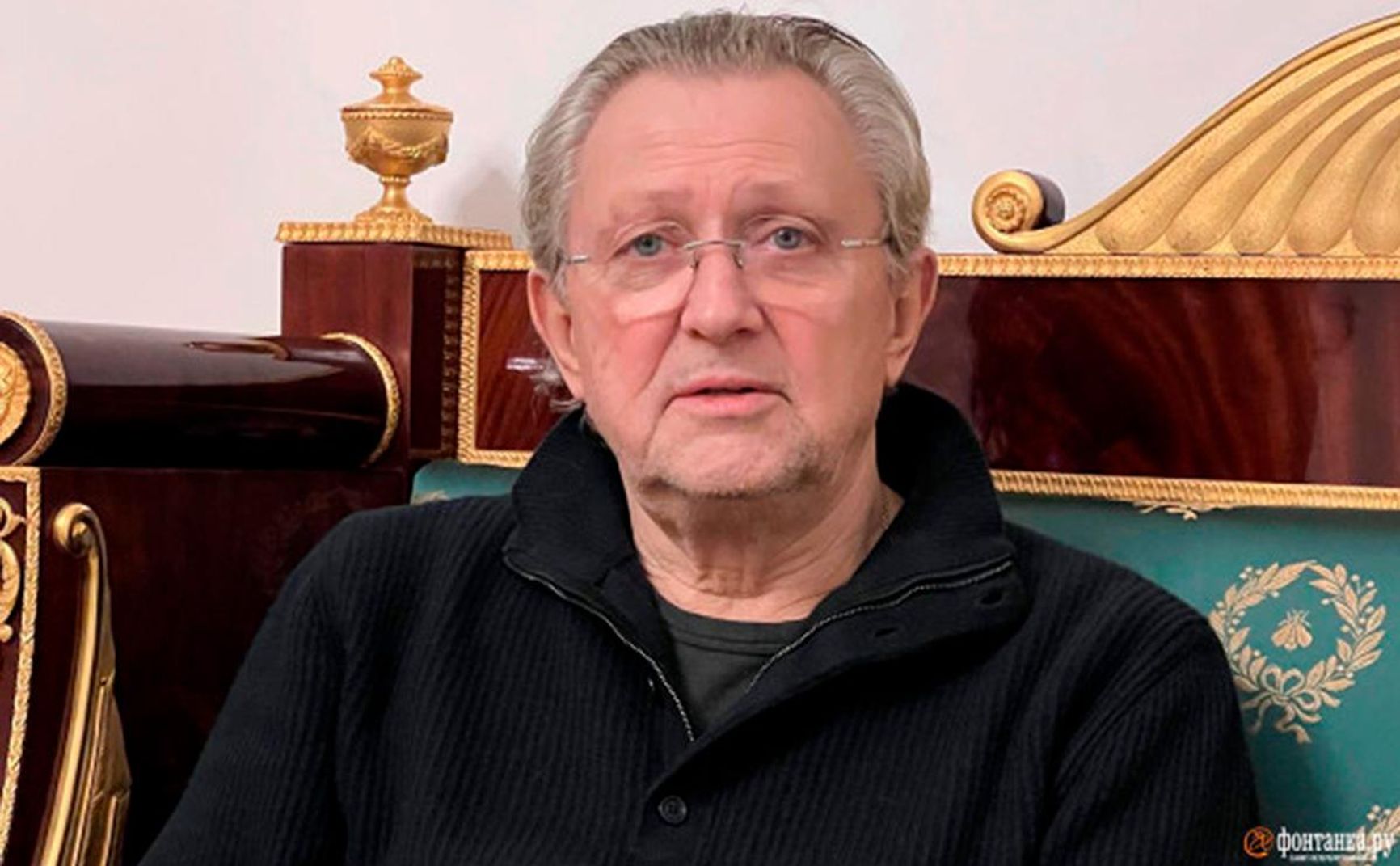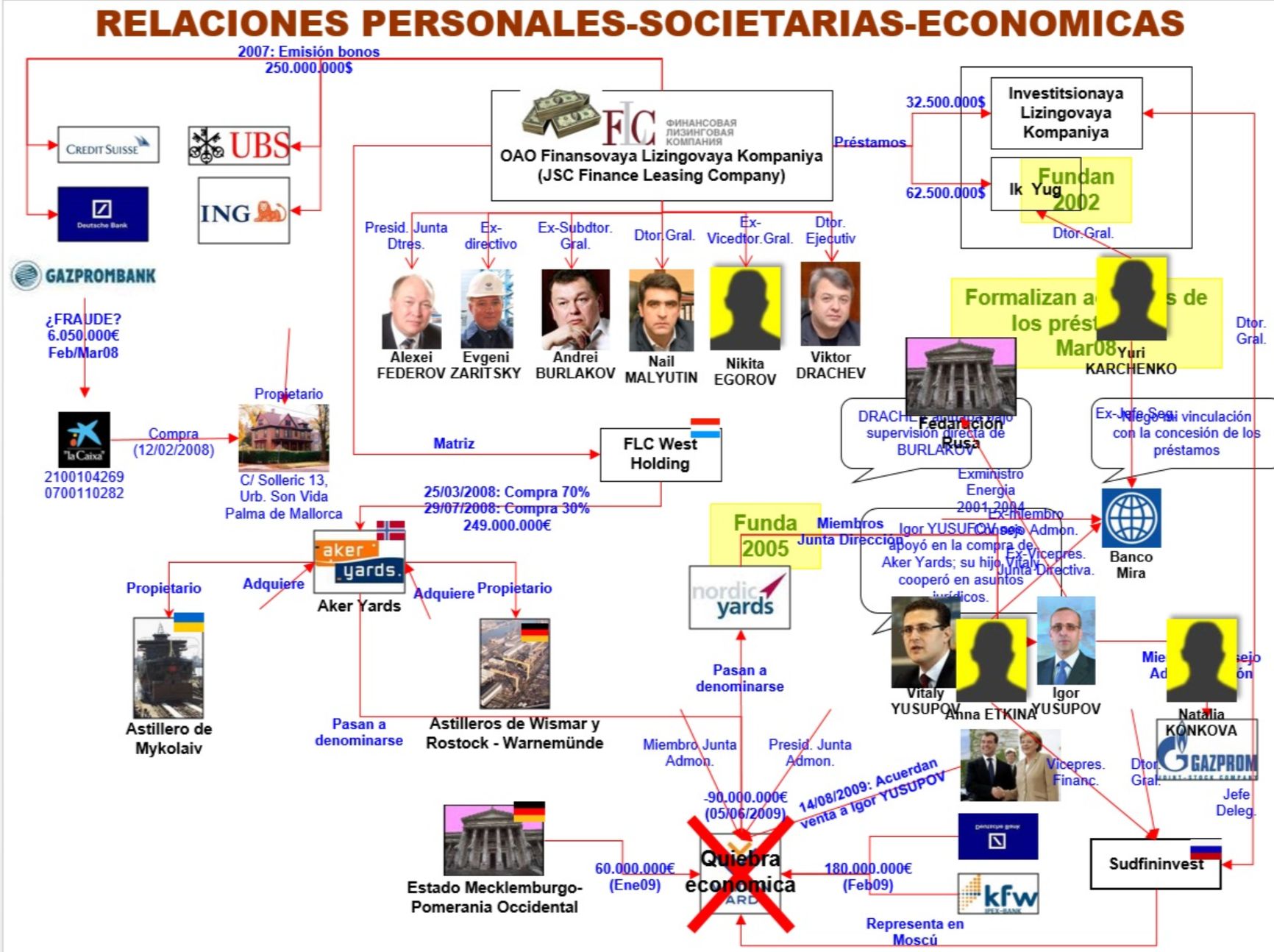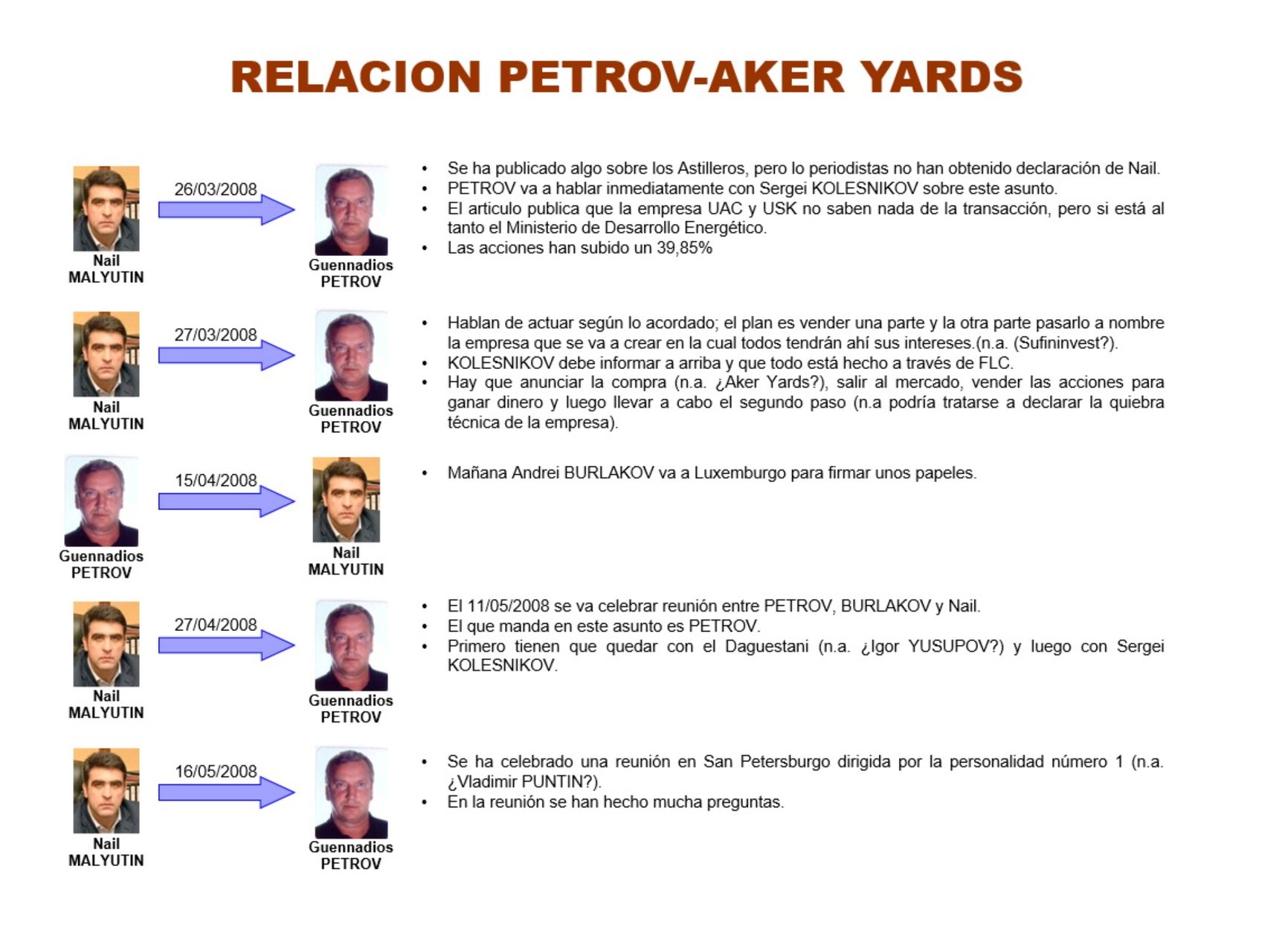

The proceedings in the case of money laundering by Russian nationals with ties to the Tambovsko-Malyshevskaya gang have come to a close in Madrid. For State Duma deputy Vladislav Reznik, the prosecutors have requested a five-year prison sentence and a fine of 30 million euros for laundering a total of over 7 million euros. According to the investigators, he worked in close cooperation with the gang's bosses, Ilya Traber and Gennady Petrov (who are both evading Spanish law enforcement in St. Petersburg). The Russian Prosecutor's Office took interest in the Tambovskaya gang, but then did all they could to interfere with the proceedings. In the meantime, the court hearings revealed Gennady Petrov's wiretapped phone conversations that make it clear the gang had received assistance not only from state officials and security agencies but from Vladimir Putin himself. The Insider offers an account of the final court hearing.
Content
«Traber is superior to Putin because Putin used to work for him»
«Number one»: Vladimir Putin
A paper from the FSB and other arguments of the defense
Closing remarks
«Traber is superior to Putin because Putin used to work for him»
By the end of the proceedings, the patience of Her Honor Ángeles Barreiro, the presiding justice, is waning. The defense attorneys hear the phrase «question disallowed» more and more often. Admittedly, their questions are repetitive: the DAs keep pestering prosecution witnesses – experts of the Civil Guard and the customs police – whether they know anything about the latest exonerating documents supplied by the Russian Prosecutor General's Office and the FSB. (It is no surprise that Spanish law enforcement officers who fight money laundering on Mallorca and other regions of the country are unaware of these documents and could not care less about them.)

The judges (sketch by David Hakim)
Chief defendants, Petrov and Traber, have not made an appearance. Traber used sickness as an excuse and suggested sending his attorney in his stead (which is not allowed by the Spanish court procedures). As a result, their interests are represented by attorneys who are formally assigned to their accomplices. Thus, Roberto Mazorriaga, the attorney of Inversiones Gudimar, an entity which presumably laundered Petrov's money, is not trying particularly hard to conceal his ties to Ilya Traber. He claims to have met Traber on Mallorca, when an «honest entrepreneur» was suffering from the noise of excavators across the street from his villa and was looking for a lawyer to bring the trespassers to justice. Mazorriaga tries to file some kind of «exonerating» dossier – a few dozen pages supplied by the Russian Prosecutor General's Office – but the court rules against tendering it in evidence. (He shows the dossier to our correspondent from afar but refuses to provide a copy.) Without batting an eye, the DAs claim that the Tambovskaya gang – which had already become notorious for its crimes in Russia by the late 1980s – is an invention of Finnish, Spanish and other foreign intelligence services (reports filed by these services have been examined in court), who cannot present «a single piece of evidence of the gang's existence,» while Petrov and Traber are law-abiding businessmen. Hoping to put his words on record in the session minutes, Mazorriaga keeps asking a Civil Guard officer: «Are you aware that the French special services, who believe Ilya Traber belongs to the Tambovskaya gang, have already been convicted for slander against him?» During the break, when The Insider's correspondent asks him which French special services were convicted for slander against Traber and when it happened, Mazorriaga fails to provide an answer. Instead, he clarifies to our correspondent: “Traber is a high-profile businessman. He is known for his temper. Right now he is outraged because, after prosecutor Grinda put him on the wanted list, he has had to leave Switzerland and sell his house. Can you imagine the scope of damages?»

Ilya Traber
When asked whether Traber actually attends Putin's birthday parties (which was previously confirmed to The Insider by two eyewitnesses), the attorney makes a surprising statement: «Ilya Traber is superior to Putin because, as far as I know, Putin worked for him in the 1990s, when he was in St. Petersburg Mayor's Office.» Mazorriaga presumes that Traber is completely innocent, even of the illegal acquisition of a Greek passport. According to him, Traber needed a Greek passport because “it is the only country to permit dual citizenship with Russia” (which is not accurate either, by the way). When cornered with a question whether Traber really threatened José Grinda (which was reported early in the proceedings), Roberto Mazorriaga counters: »Traber told me he thought the prosecutor was a pedophile and an idiot – and it is true that he has a temper – but I would like to see any evidence of actual threats.» The prosecutor was not the only one to report threats. When our correspondent asked one of the experts who had testified for the prosecution to state her surname, she refused outright and objected to any mentioning in the Russian press because she, too, had been threatened by one of the defendants. «I won't give you my name. The prosecutor has bodyguards; I don't. Of course, it's not Reznik – he is a gentleman. But some of them are dangerous.» Apparently, Traber's threats have aggravated the situation for other defendants, including Vladislav Reznik, a State Duma deputy for United Russia who hopes to be acquitted. In his closing argument, the deputy's attorney emphasizes that «Reznik never said he was friends with Traber.» However, not only did Reznik admit that he and Traber were on friendly terms, but he also called him during the litigation, which The Insider previously covered and which was in the minutes of the proceedings. Gangsters and intelligence services
The next witness is a Spanish police officer who investigated the gang in 2006. He clarifies the context: organized crime groups that engaged in smuggling in the 1980s' Soviet Union switched to racketeering and contract killing in the 1990s. Later on, their image changed – they became businessmen. The name of Valery Ledovskikh comes up. Ledovskikh, alias Babuin [»Baboon»], started off as a boxer and went on to co-found the Tambovskaya gang with the notorious Vladimir Kumarin (both men come from Tambov). In the 1990s, Ledovskikh was arrested for extortion, but the victim soon «forgot» that someone had extorted anything from him. Subsequently, he headed a charity founded by the Reserve Officers' League, which had in its turn been established by Anatoly Serdyukov's associate, Oleg Khukhly. «The gangs worked in close cooperation with the KGB (FSB), for instance, in the metal exporting business,» says the Spanish police expert. «First, they set out for the Baltic states, then to Germany and to Spain.» He also reminds about Mikhail Monastyrsky's testimony in 2007, when the ex-deputy and member of the Tambovskaya gang stated to the Spanish Civil Guard officers that the gang had been created by the Russian intelligence services. A resident of Estepona (Spain), Monastyrsky came to the Spanish law enforcement voluntarily, claiming that he feared for his life. Soon after his deposition, he was run over by a cement truck in France. Here is an excerpt from his testimony: «The policeman asks Mikhail whether the crime group in question exists, even if Mikhail were to deny his appurtenance to this structure. Mikhail responds that the matter is complicated and says the organization was created artificially by a St. Petersburg security agency. WORD-FOR-WORD transcript (the interrogation continues):
Mikhail Monastyrsky (М): KUMARIN, as well as three other key players, has been a KGB (later FSB) informer since 1986.
P1. Who are these three people? Organizers? Founders?
M. Vasya BRYANSKY and Valery LEDOVSKIKH, who is currently a lieutenant colonel and works for the GRU, I presume.
P1. Who else? You said there were three of them.
M. Vasya BRYANSKY is an eliminator, as they call him.
P1. Assassin.
M. He runs a team of assassins. The rest of them are criminals.
P1. You mentioned three people. Bryansky, Ledovskikh... Who is the third?
M. There was also his neighbor from Marbella, Mikhail «Khokhol» [Rus. derog. «Ukrainian»] GLUSHCHENKO, but he had no direct contact with the intelligence.
P1. But is he in the same rank as the other two? Is he a boss?
M. Yes, they are on the same level, but the others have ties to the intelligence, while this one is just a criminal. He had his own brigade, his own team. There was also Shevchenko, who was killed on Cyprus. He was introduced to members of the Tambovskaya gang in 1996, when he became an LDPR deputy. Then there was Yuri Shutov, aide to Mayor Anatoly Sobchak. Shevchenko and Glushchenko had paid 300,000 to Zhirinovsky [leader of LDPR] to become deputies. It was then that I met them (the Tambovskaya gangsters), at a meeting in Moscow. Starting from 1988, he didn't live in St. Petersburg. He left for Germany, then for Switzerland, where he was running a business, and he also lived in Moscow.»
«Number one»: Vladimir Putin
At the trial, it turns out that Spanish attorney Juan Untoria, the defendant whom the investigators believe to be Gennady Petrov's right-hand man, had supplied to the investigators: «Petrov was friends with Reyman, Reznik, and Putin.» Later, in court, he changed his mind and said he knew nothing about Reyman or Putin. And yet the name of the Russian president comes up during the proceedings again, in a different context – with regard to Tambovskaya gang's takeover of German shipyards. On March 14, the prosecution supplies evidence of money laundering by Petrov's henchman, Nail Malyutin, in Germany. The Insider covered that episode in detail in our story «'They claimed to act in Medvedev's interests': How mafia laundered money at German shipyards.« To remind you, when German shipyards were acquired, the plan was to create a joint venture, bringing together the yards in Wismar and Warnemünde (Germany), a plant in Mykolaiv (Ukraine), and Vyborg Shipyard, which was controlled by Ilya Traber's people and Sergei Kolesnikov, and Lirus Management AG, a Liechtenstein-based offshore firm (which had Vladimir Putin as its beneficiary, according to Kolesnikov). At the trial, new details of the infamous case emerge. The Civil Guard experts show a presentation which explains how Financial Leasing Company (a subsidiary of state-owned United Aircraft Corporation – UAC) purchased German entity Wadan Yards, getting loans from German and Russian banks, issued bonds underwritten by Sberbank, and withdrew the money to a subsidiary in Luxembourg, eventually bankrupting the shipyards. Malyutin used a share of the embezzled money to buy a villa on Mallorca. It was with Malyutin that the gang's boss Gennady Petrov discussed the acquisition of the shipyards through straw owner Andrei Burlakov – according to his phone conversations that were wiretapped by the Civil Guard and presented at the trial in Madrid, partly in the interpretation of the testifying Civil Guard officer. The conversations lead us to believe that the deal required approval of the Kremlin through Sergei Kolesnikov, a businessman from Putin's inner circle and Petrov's neighbor in the elite compound on Kamenny Island in St. Petersburg. (It was Kolesnikov who had financed the construction of «Putin's palace» at Cape Idokopas, with Gennady Petrov's lawyer formally managing the company listed as its owner). As the conversation unfolds, they mention that Kolesnikov has spoken to the «top man,» helping Petrov to lobby a certain individual.
After the acquisition of the yards, Petrov and Malyutin are happy to learn that their shares are growing, and Petrov says with confidence that it is because «everyone knows who is backing them.»

A fragment of the presentation displayed at the trial
On July 11, 2007, Nail Malyutin asks Gennady Petrov if they are going to organize the reception for Alexei Fyodorov, the president of the UAC, late in August on Reznik's yacht on Mallorca or if they need to find a different venue. Petrov and Malyutin refer to Igor Yusufov, former Minister of Energy, who participated in the shipyard deal, as «electrician.»

A fragment of the presentation displayed at the trial
According to the presentation shown by the investigators at the session, Malyutin and Petrov arranged a personal meeting to discuss the shipyard deal on May 11, 2008. On May 25, 2008, Petrov and Malyutin mentioned in a conversation that Burlakov was to meet Medvedev in person to discuss the deal. After that, Burlakov scheduled a meeting with Petrov. On May 16, 2008, Malyutin and Petrov discussed a meeting with a certain «number one.» The Spanish investigators presume they were referring to Vladimir Putin. Later, another conversation between Nail Malyutin and Petrov is played in court: «I keep in touch with Sergei; everything is fine with the ships. The top man says he’ll consider it.» Not long after that, Andrei Burlakov – the formal co-owner of the shipyards – was arrested in Russia, released on bail, and assassinated. His daughter Anastasia says the Yusufovs approached him shortly before these events, trying to persuade him to yield his stake for peanuts. Here is another conversation, this time between Petrov and Duma deputy Reznik, in which they say that «the Czar» has already signed the necessary papers but worry about potential problems on a lower level:
A paper from the FSB and other arguments of the defense
The trial goes on. Officers of the Spanish Civil Guard reveal that Traber, according to a report by the French intelligence, was a shadow co-founder of the Petersburg Fuel Company along with Vladimir Kumarin. In response, attorney Roberto Mazorriaga attempts presenting more «exonerating documents» to the court. One of them is a form issued by the Directorate of the FSB for St. Petersburg in Liteyny Prospect, which starts with an address to Traber himself: «Dear Mr. Traber, ...» Another document is from Vyborg City Court. Both papers are to confirm the absence of grievances against Traber.
The defense attorneys (sketch by David Hakim) Roberto Mazorriaga also claims that Traber is acquainted with «a high-ranking CNI officer (Spanish intelligence service),» presumably to impress the judge. Mazorriaga later clarifies to The Insider that he referred to Jorge Descallar, former ambassador of Spain to the United States. It turns out Descallar was Traber's neighbor on Mallorca, and policemen from his security guard once spent a night at Traber's place for want of a better option, claims the attorney. The judge is particularly unimpressed by a defense witness for Jesús Angulo, who is suspected of laundering money for Petrov and Malyshev. The witness claims to possess evidence of Angulo's innocence – a number of invoices – but eventually admits that he has forgotten the originals in his office and is dismissed. Generals in wiretapped conversations March 20 sees a heated debate about wiretapped conversations between Petrov and his associates (read more about these conversations in our next story). Several interpreters are interpreting the conversations in real time. The recordings lead us to believe that Petrov enjoyed direct access not only to Duma deputy Reznik but also to General Nikolai Aulov (the then deputy director of the Federal Drug Control Service) and Igor Sobolevsky, deputy head of the Investigative Committee. In addition, Petrov and his associates discuss Herman Gref, who «is lobbying the non-granting of gold-mining licenses,» and decide that Petrov should speak with him, once in Moscow. They discuss a certain customs check when «all the flights were turned upside down» and «Slava was mentioned»: «That's bad f***ing form!» On November 1, 2007, Malyutin calls Petrov to relay Herman Gref's invitation to the celebration of Sberbank's 160th anniversary on November 12. Gref and Malyutin met each other at St. Petersburg Mayor's Office: according to a local businessman who has sought asylum in Europe, Gref's office in the 1990s featured a certain «Nail Anvarovich» [the latter being a patronymic], who introduced himself as «attorney at law.» He did not give his name, but the description of his appearance leads us to believe it was Malyutin. On December 11, 2007, Petrov answers a call from Leonid Khristoforov. (As prosecutor Juan Carrau reminds the court, Khristoforov was interrogated in St. Petersburg with regard to Galina Starovoitova's murder – presumably, he had helped to obtain the gun she had been shot with.) Khristoforov tells Petrov: «Have you seen Medvedev give a speech, asking V. V. to take over as Prime Minister? Well, we'll have a king without a crown and our man as the PM, heading the entire government.» «I don't think it will be for long.» «Who the hell knows? There's no guessing when it's all up to one man.» «Well, let's keep a lookout for new developments.»

At the trial (sketch by David Hakim)
In October 2007, Petrov speaks to notorious crime boss Ded [»Grandpa»] Khasan (real name Aslan Usoyan), who will subsequently be shot in Moscow. They discuss business in Krasnodar. One of the conversations features the word «poddelat'» [Rus. «to forge»] (papers), which is immediately protested by the defense. «What they meant was to finalize! This word can have several meanings,» exclaim the defendants with indignation. The interpreters beg to differ. At the end of the session, defendant Yulia Ermolenko aggressively approaches one of the interpreters. The judge shouts «Police!» and Ermolenko steps back. Reznik's defense insists that «Slava,» mentioned in Petrov and Traber's conversations multiple times, is not necessarily a reference to Vladislav Reznik. However, as The Insider previously pointed out, Reznik is still using the same phone number and has a distinctive voice. «Petrov's notebook has several entries with the name 'Slava'!» claims the attorney and starts listing them. The list, which is meant to prove Petrov's and Reznik's innocence, features a certain «Slava Ficus.» The defense struggles to prove that «Genka,» mentioned in third-party conversations, is probably not a reference to Petrov, but their attempts are even less convincing.
Closing remarks
Vladislav Reznik and Diana Gindin, who are charged with the laundering of 7.3 million euros through buying entities with assets like yachts and villas from Petrov and who presumably bought a private jet jointly with Petrov's son Anton, claim they were simply «optimizing their asset management.» From the investigators' perspective, Reznik and Gindin purchased Petrov's property in full knowledge of the fact that he had bought it with dirty money. «Reznik is a foreign parliamentarian, and his conviction would complicate the relations between our countries,» Reznik's attorney warns the judge. In their closing argument, the prosecutors state that they believe the existence of Tambovsko-Malyshevskaya gang to be a proven fact, along with a number of money-laundering episodes. According to the investigators, the gang has laundered a total of over 50 million euros. They request a five-year prison sentence and a 30-million-euro fine for Reznik and shorter sentences for the remaining 14 defendants. The defendants sneer and laugh. The prosecution has also requested prison terms for Sergei Kuzmin, Alexander Malyshev, Leonid Khazin, and Mikhail Rebo, all of whom have pleaded guilty of laundering money within the organization, but their terms will not apply. Rebo, a German national, will be barred from entering Spain. Prosecutor Juan Carrau reminds in his closing arguments that Petrov claims to possess no entities in Russia. Ages ago, he owned the Petrodin company and gave boxing lessons, but that was it. How can he explain the origins of his multi-million fortune? He was registered as a sailor on Mallorca, with his friends Leonid Khristoforov and Arkady Buravoi listed as crew members of his yacht, which was supposedly offering sea cruises. However, these services existed only on paper, says Carrau. Prosecutor Jose Grinda also stated that the gang «traded in influence,» lobbying the promotion of certain individuals to public posts in Russia trough their connections. As Grinda points out, «when Putin came to power, the times changed. The gang moved on from money laundering to the whitewashing of their reputation, assisted by their contacts in Russian state security agencies.» The defense attorneys object that Petrov's broad network of acquaintances – which includes Viktor Zubkov, Nikolai Aulov, Anatoly Serdyukov, and a Spanish intelligence officer – testifies to the fact that he is a law-abiding entrepreneur, who has, by the way, been acquitted of the charges with regard to the Greek passport falsification. They add that the Tambovskaya gang is a myth, and therefore, charges of appurtenance to it or money laundering on its behalf are invalid. The defendants lament the «Kafkaesque nature» of the charges, and Andrei Malenkovich (Yulia Ermolenko's husband) even says: «When His Honor Baltasar Garzón declared 'Operation Troika' and arrested my wife, I could not help thinking about Stalin's Troikas!» [NKVD Troikas were three-member commissariats that issued sentences to people after simplified, speedy investigations and without a public and fair trial.] However, he expresses his respect for the Spanish court, which has looked into the matter wit due scrutiny. The final sentence may take several months to pass. The defendants who reside in Spain have undertaken not to leave the country, while Vladislav Reznik and Diana Gindin have returned to Moscow. If they are convicted, they will simply avoid going to Spain in the future.
Other reports from the trial in Madrid: 1 report: «Reznik is not a gangster, he is an MP!». 2 report: The Consigliere of Two Masters: Putin's majordomo turns out to be attorney of notorious crime boss 3 report: «I just took him to Majorca on my plane!». How an MP from United Russia hangs out with Tabovskaya gang leaders